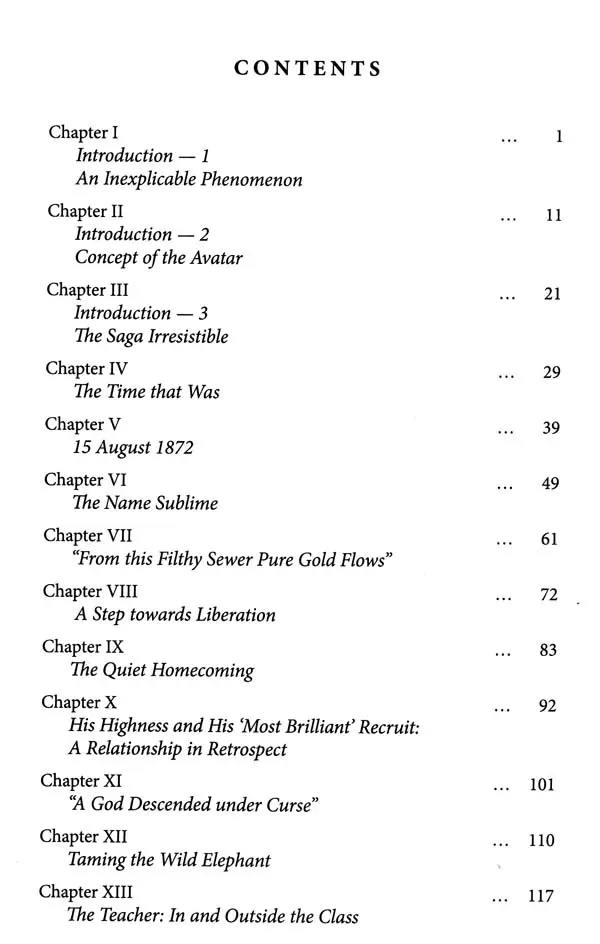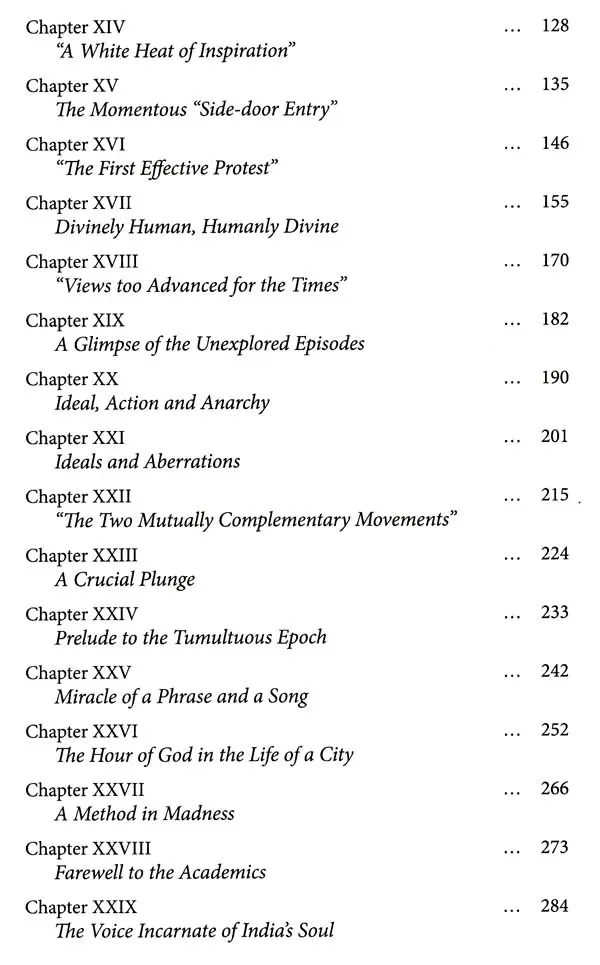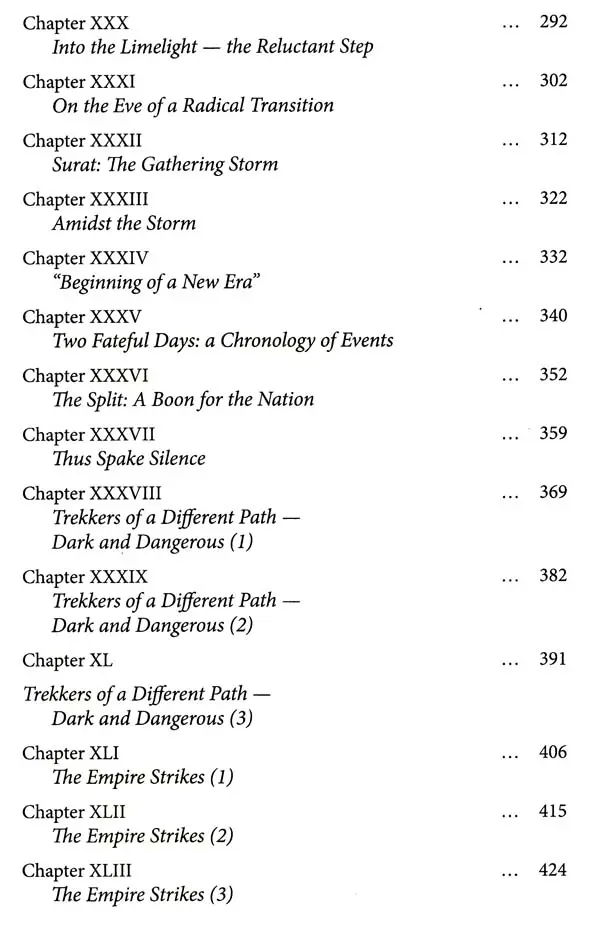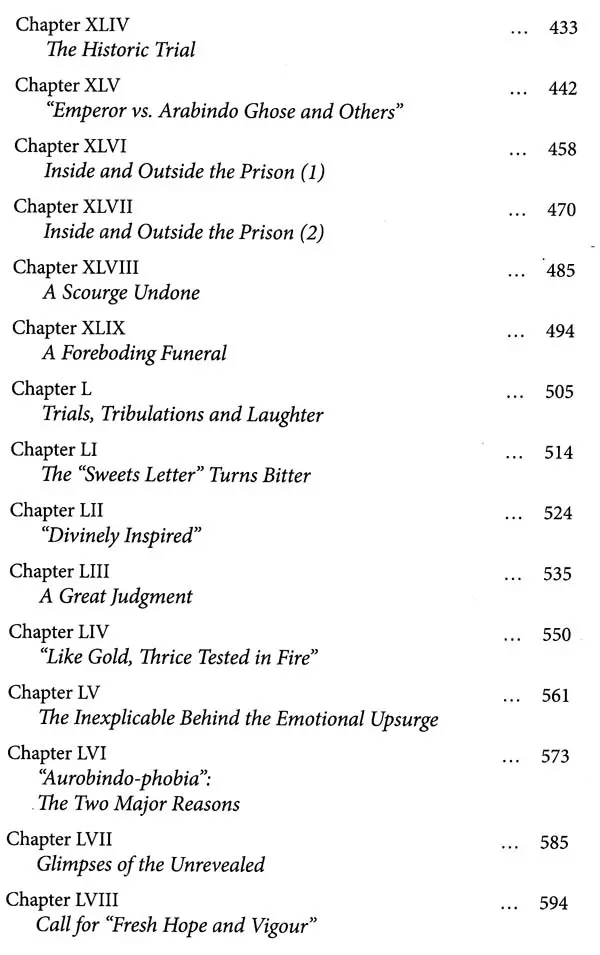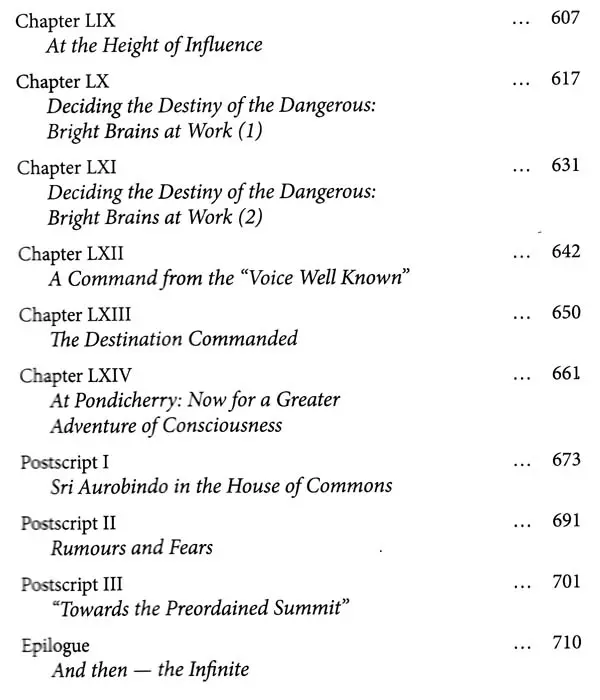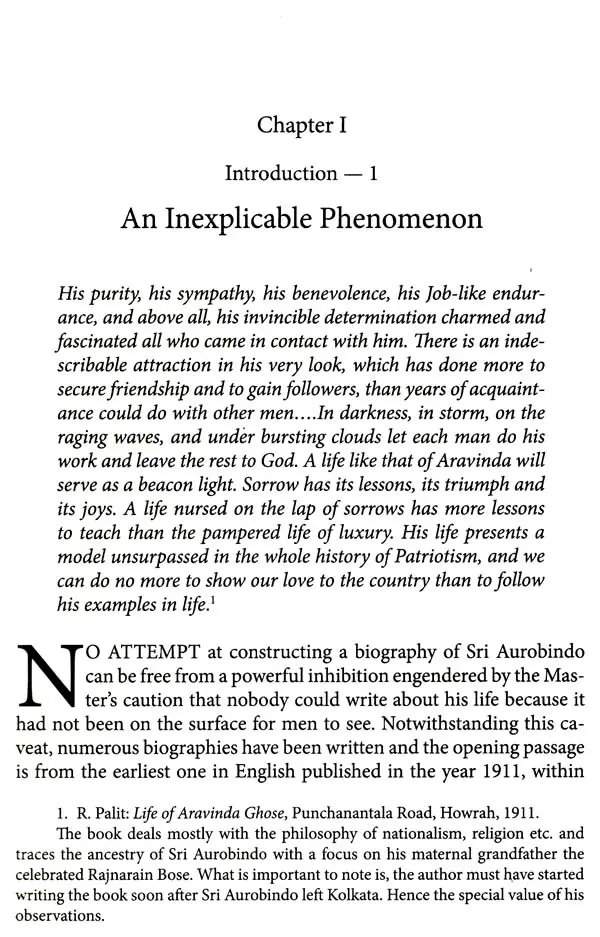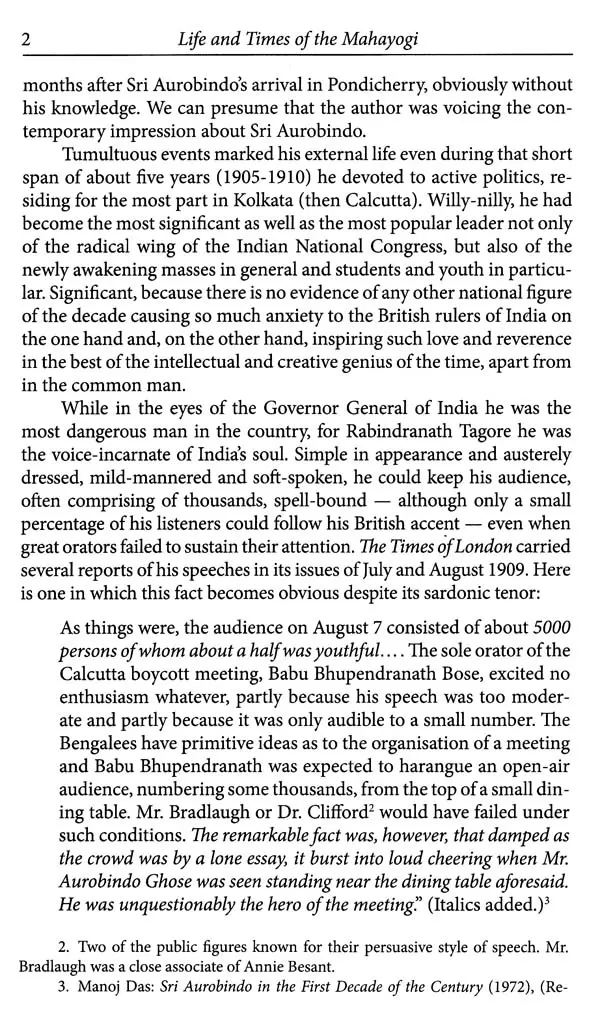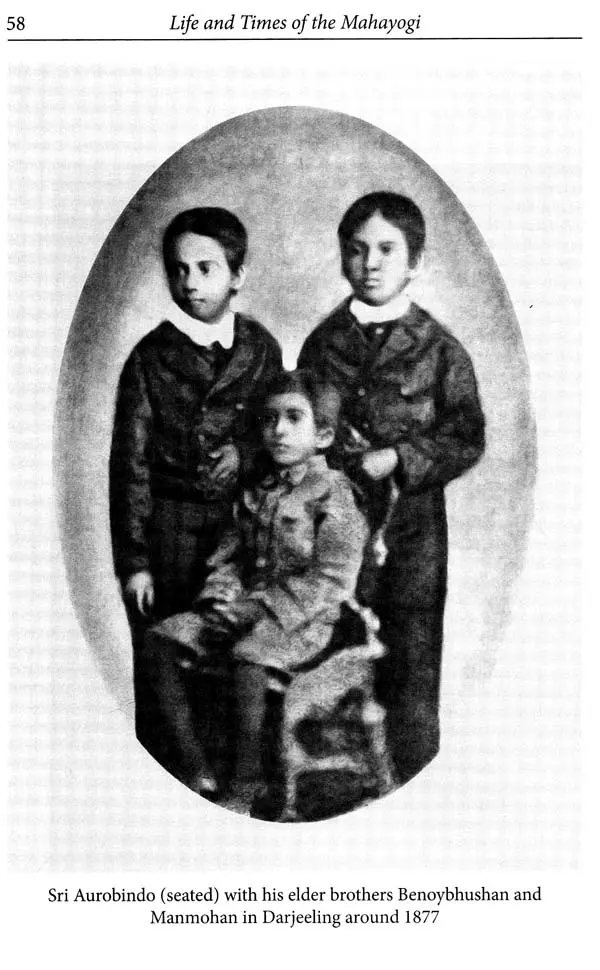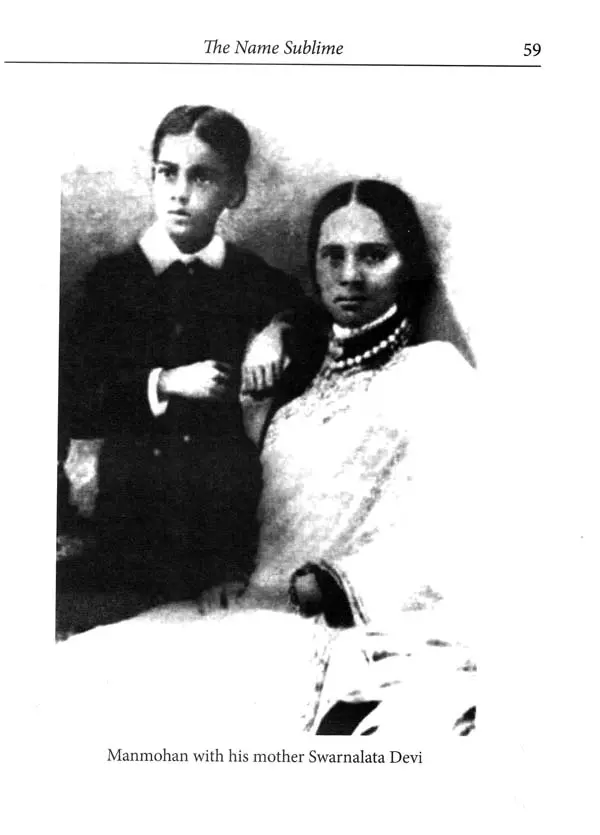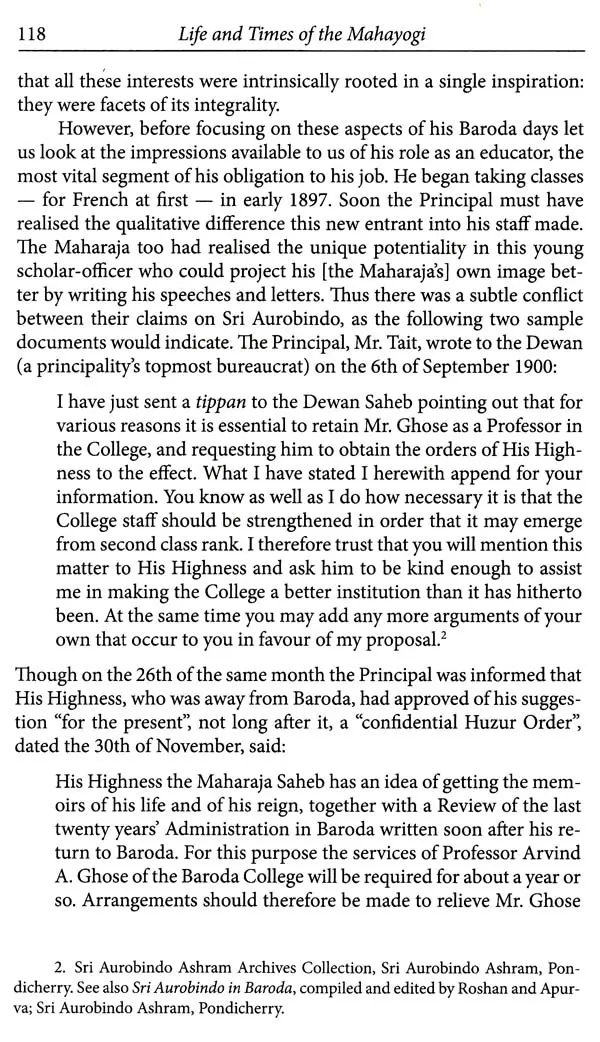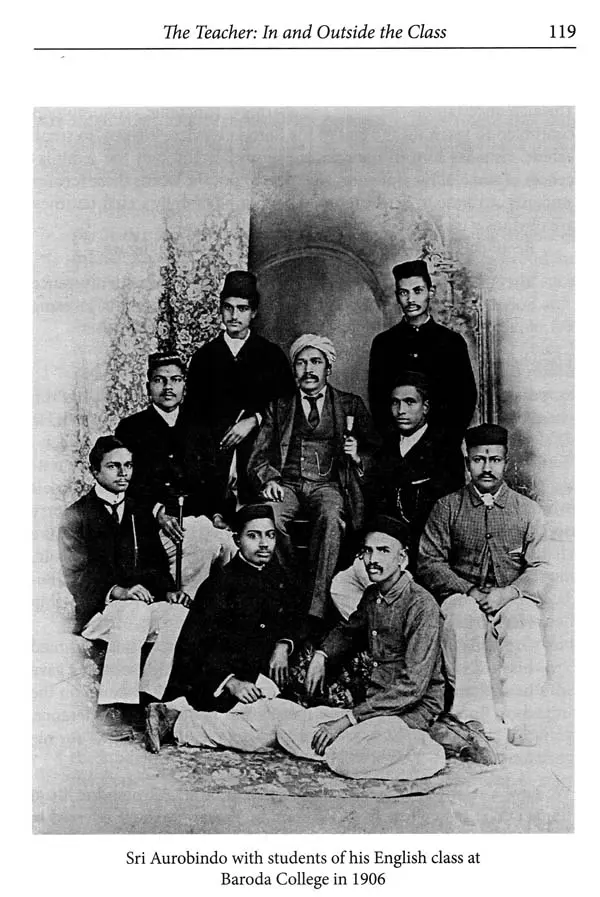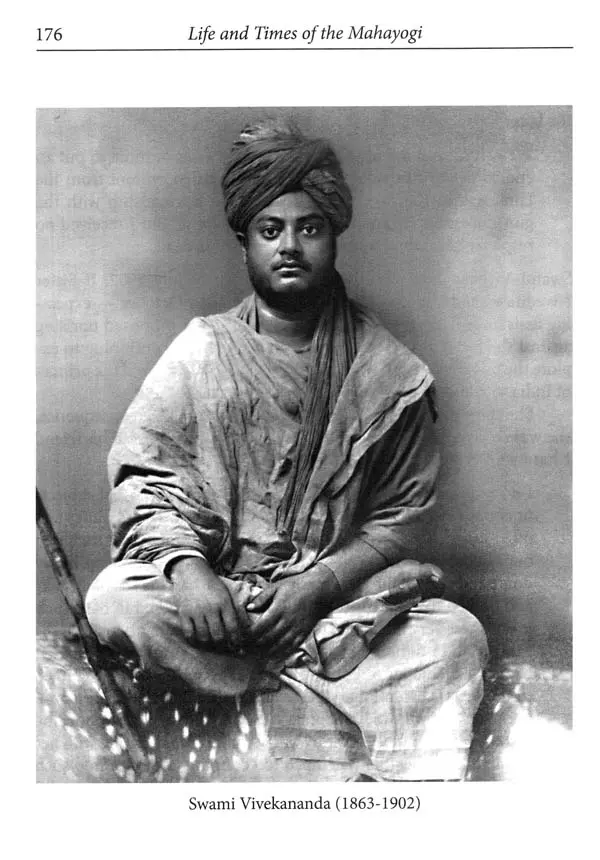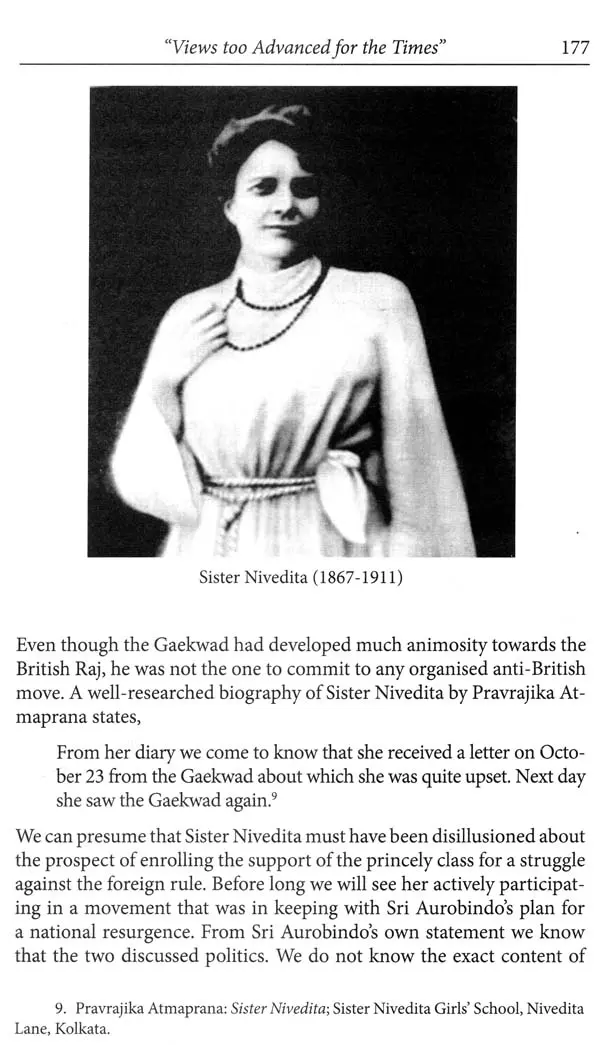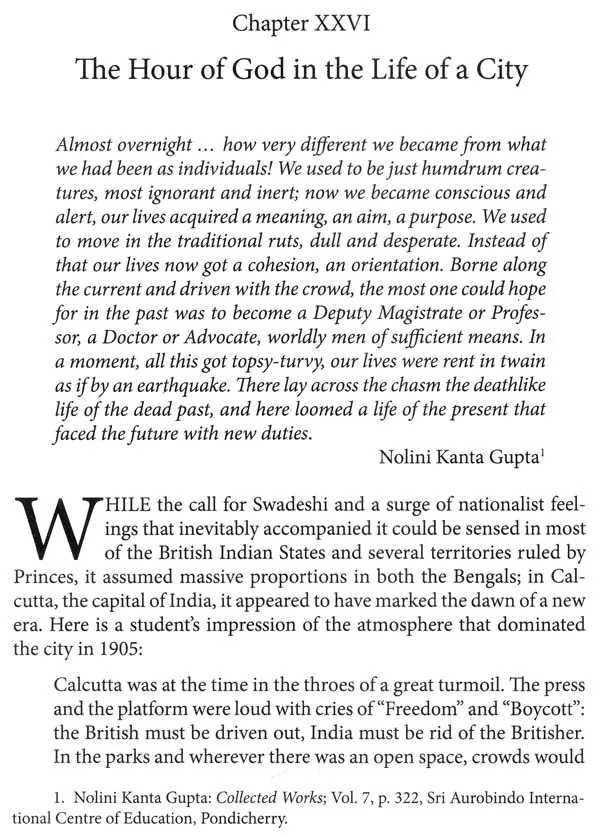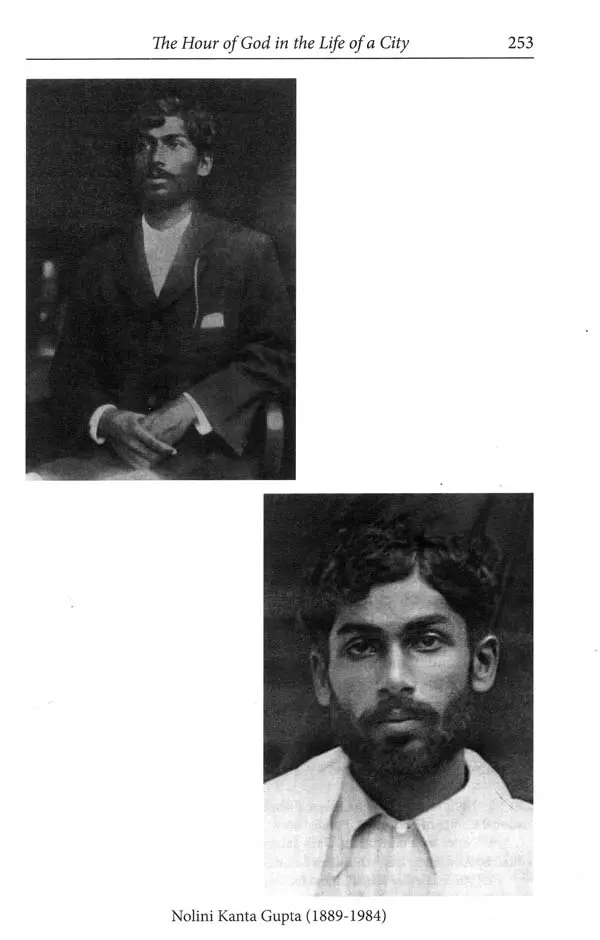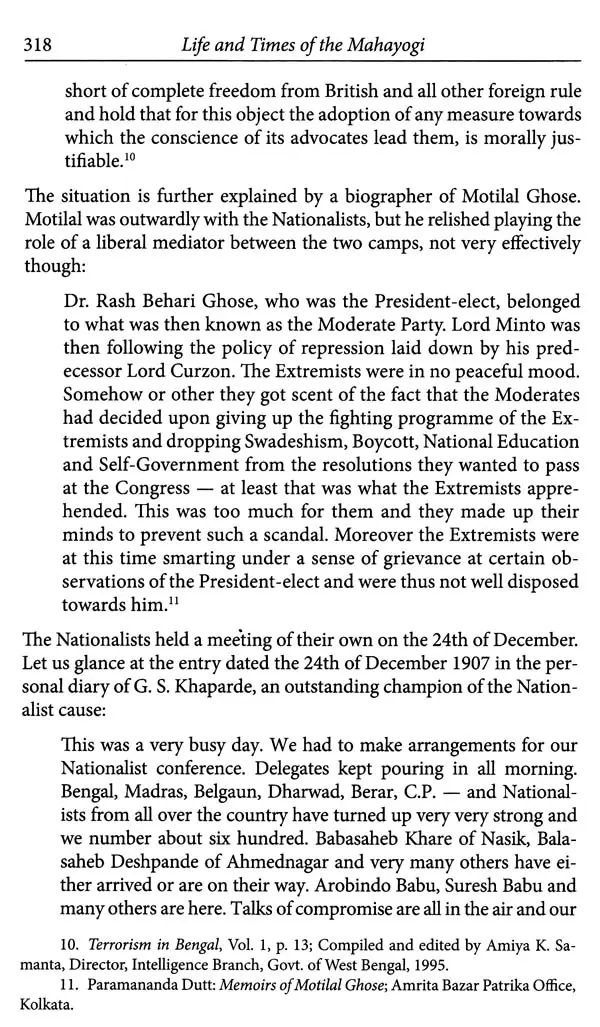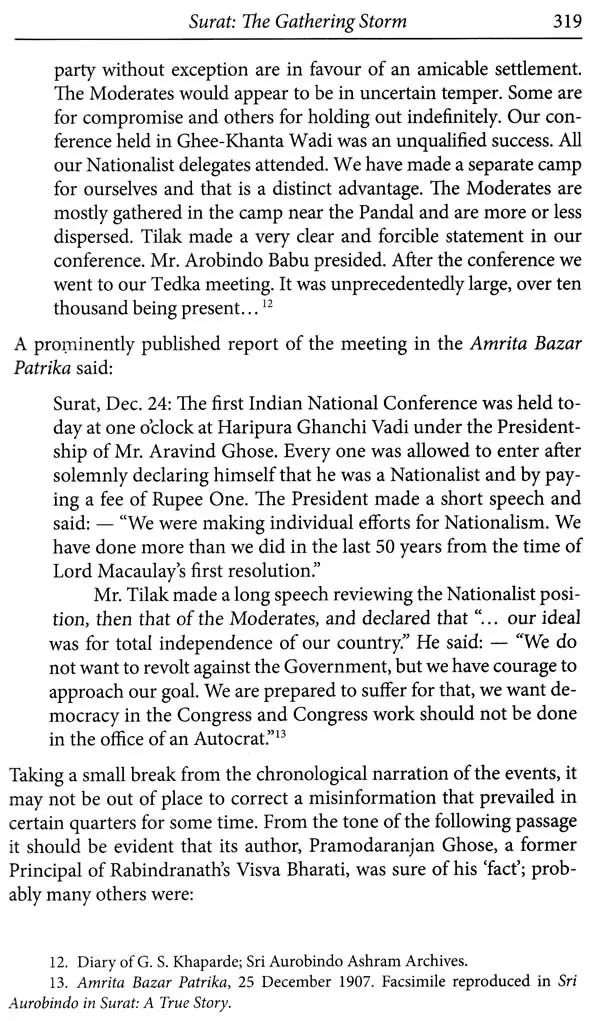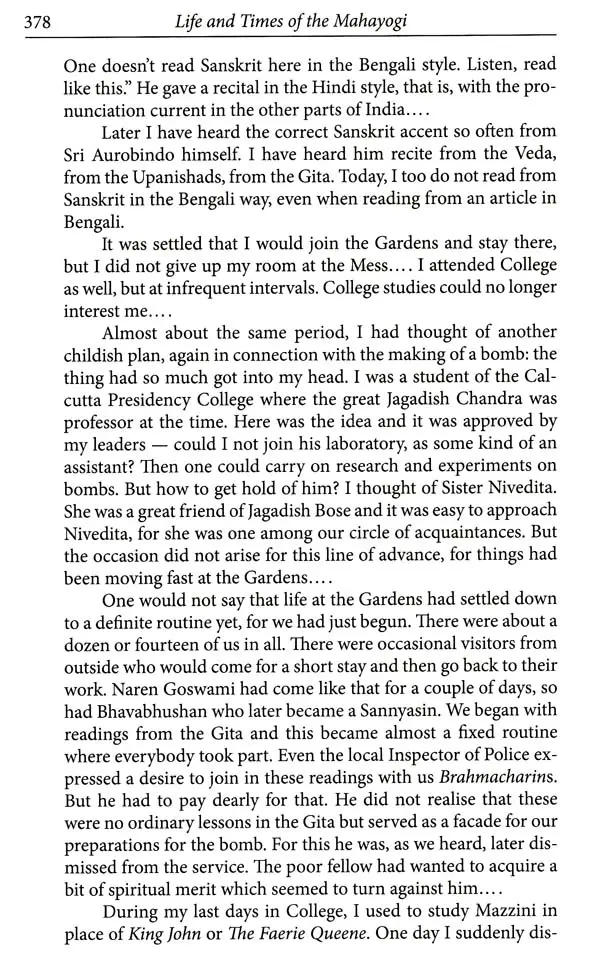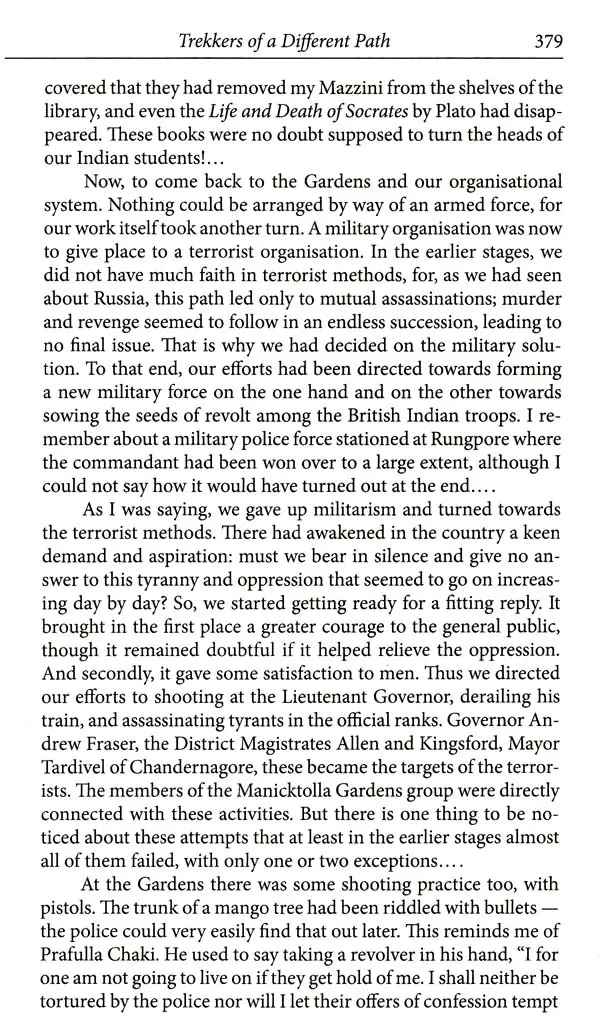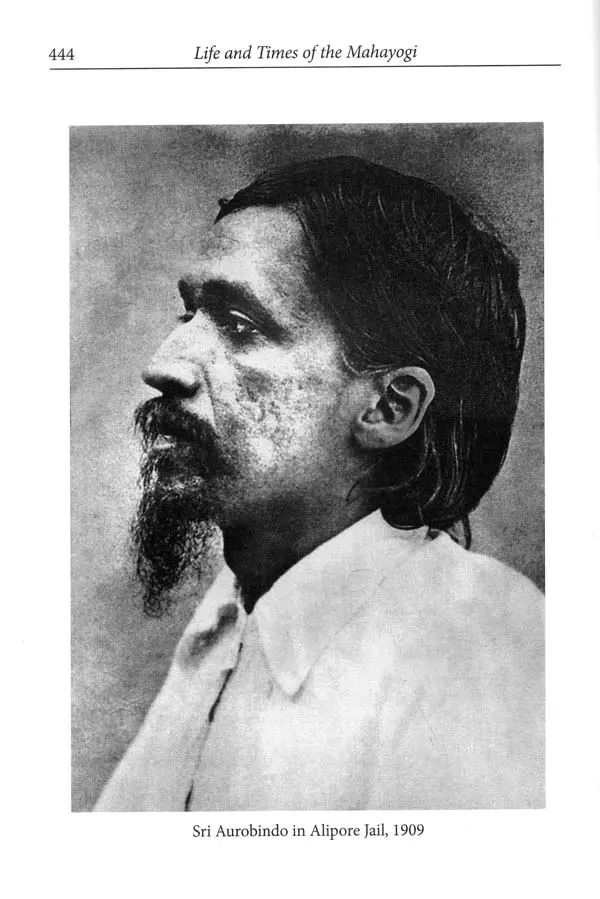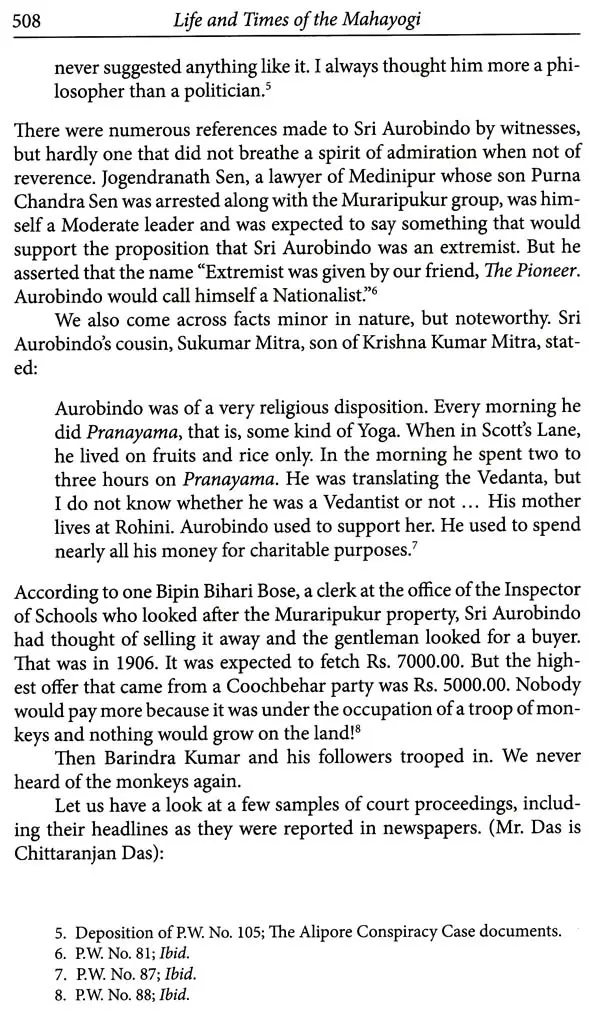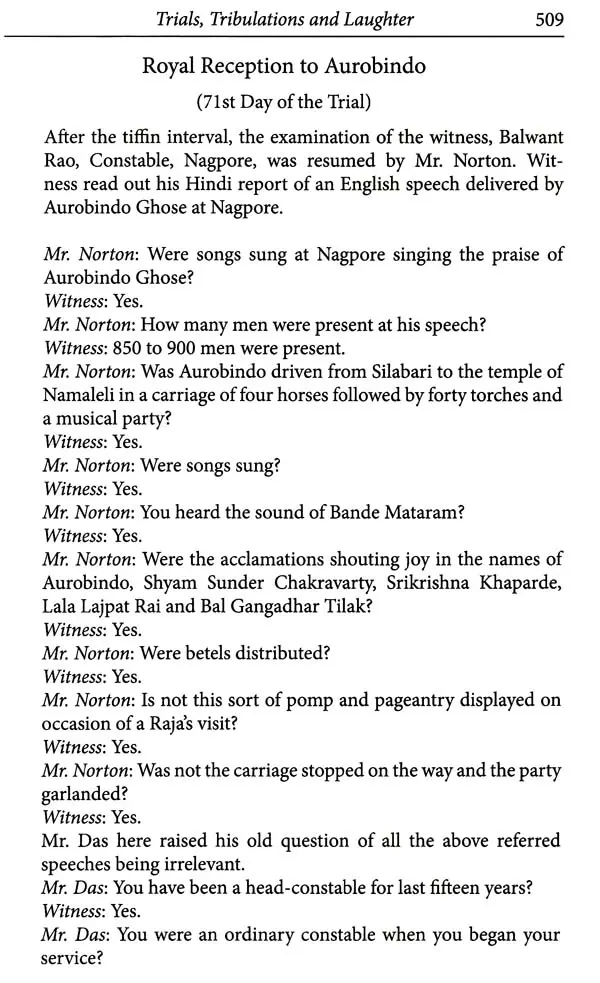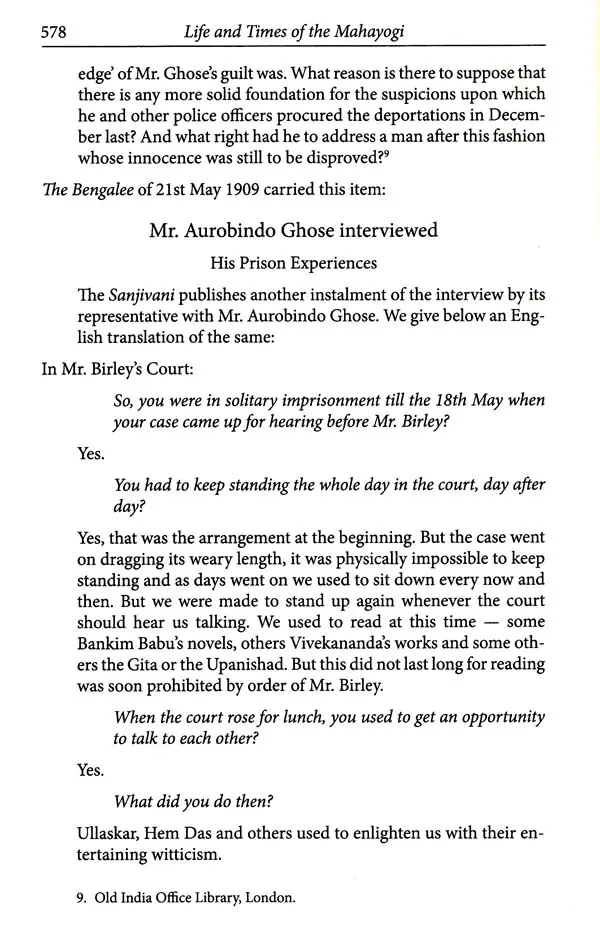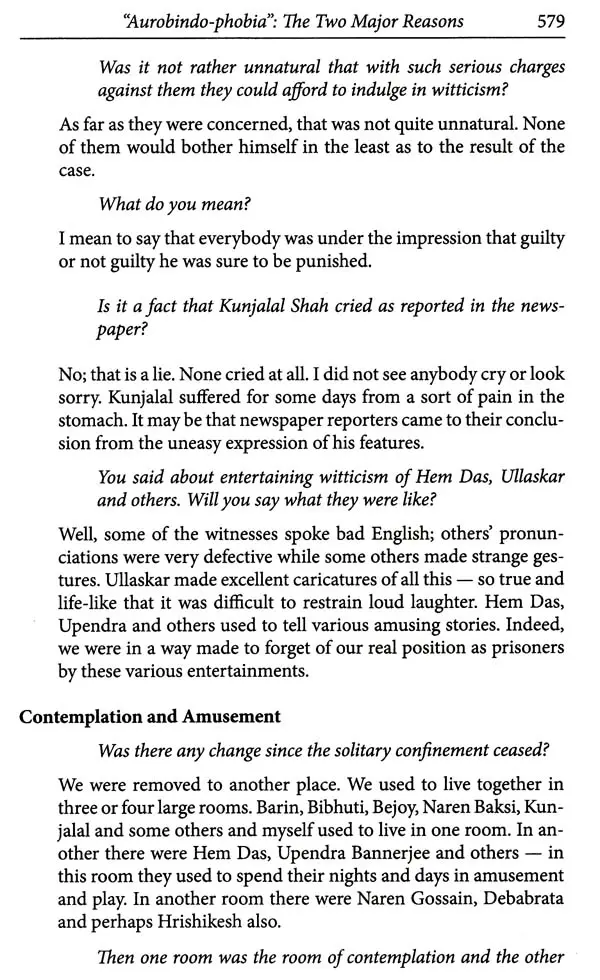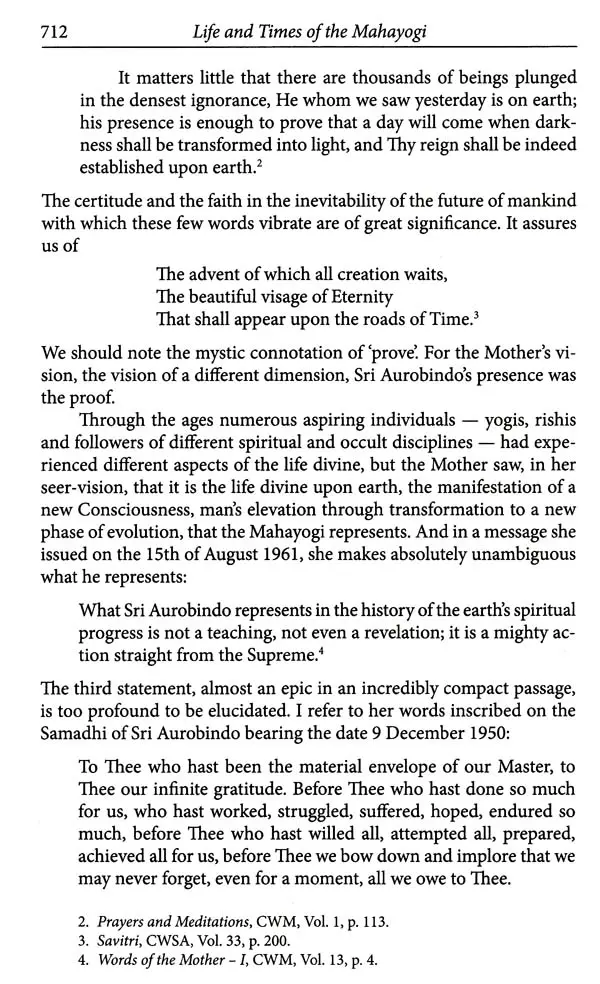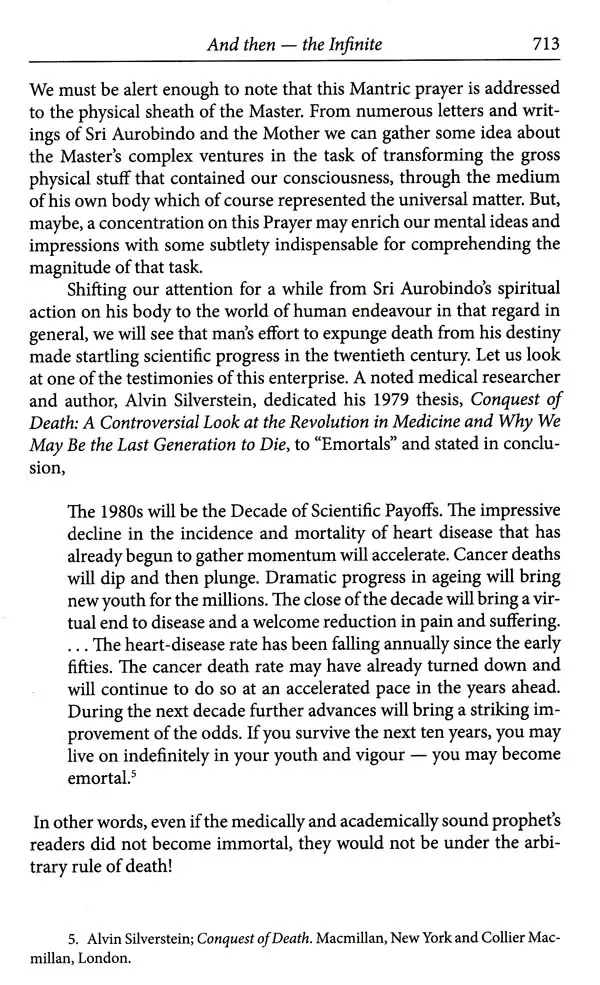
Sri Aurobindo Life and Times of the Mahayogi (The Pre-Pondicherry Phase)
Book Specification
| Item Code: | UAI852 |
| Author: | Manoj Das |
| Publisher: | Sri Aurobindo International Centre of Education |
| Language: | English |
| Edition: | 2020 |
| ISBN: | 9789352102280 |
| Pages: | 716 (Throughout B/W Illustrations) |
| Cover: | HARDCOVER |
| Other Details | 10.00 X 7.00 inch |
| Weight | 1.37 kg |
Book Description
And the earliest historian of the freedom struggle, Dr. Pattabhi Sitaramayya, affirmed (1938), "Sri Aurobindo shone for years as the brightest star on the Indian firma ment... His genius shot up like a meteor... He flooded the land from Cape to Mount with the effulgence of his light."
Have the subsequent records and comments done justice to such momentous observations of that early phase of our freedom struggle? This work may enliven that question.
He is a creative writer in Odia and English and through his essays and tales, has been an interpreter of problems and events from a spiritual light. The accolades he has received include D.Litt. (Honori Causa) from five universities, along with Padma Shri followed by Padma Bhushan.
The list of national and regional awards he has received from all parts of India include the Sahitya Akademi Award followed by the Akademi's highest honour "Fellowship" and the Saraswati Samman instituted by K. K.. Birla Foundation.
In January 1971 I wrote a series of three articles in The Illustrated Weekly of India, then the foremost news-cum-literary journal in the country. The series narrated the saga of a heroic battle fought by the legendary revolutionary Jatindranath Mukhopadhyay (1879-1915), famous as Bagha Jatin (because while in his teens he had killed a tiger singlehanded in a village), with a well-armed huge police force, on the outskirts of Balasore (Baleswar) town, the headquarters of my home district in Odisha.
I had substantiated my facts by the help of some rare documents and photographs in the possession of Shri Tejendranath Mukhopadhyay, Bagha Jatin's son who was an inmate of Sri Aurobindo Ashram. The thrilling account of the fight which ended only when the Bagha and his brave lieutenants exhausted their ammunition and were severely wounded, received warm appre ciation from the Weekly's readers. One day I received a note from the editor, Shri Khushwant Singh, enclosing a letter addressed to him by the Press Secretary of Shri Ghanashyam Das Birla. Shri Singh advised me to reply to Shri Birla.
Shri Birla, who read my series with great interest, had pointed out what he thought to be an error about the identity of the British officer leading the police force. I wrote to Shri Birla's secretary asserting that there was no error in my report. The response to my letter came from Shri Birla who in his exemplary humility, admitted to my being right.
**Contents and Sample Pages**

